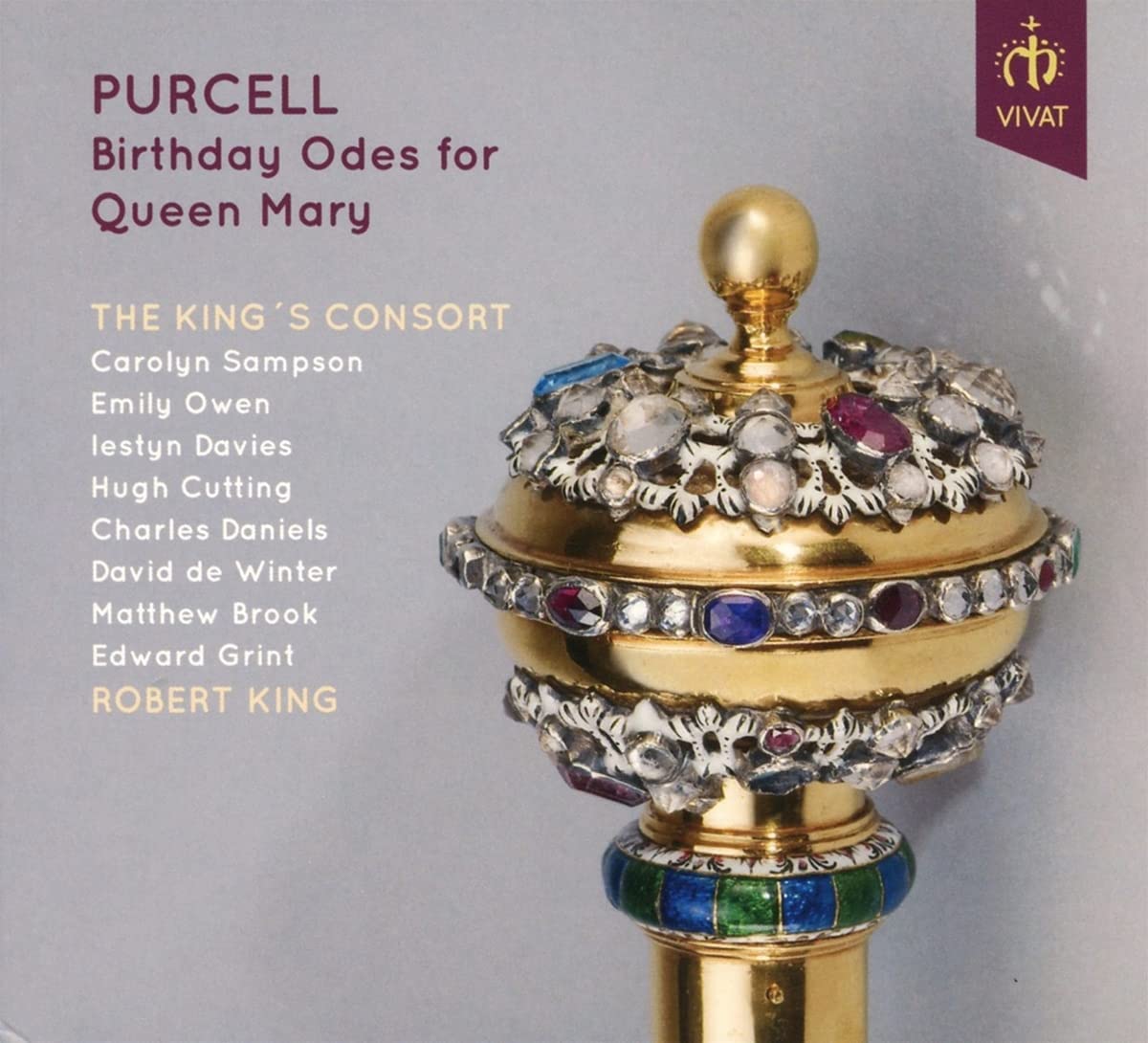The King’s Consort, Robert King
77:10
VIVAT 122
Click HERE to buy this on amazon.co.uk
[These sponsored links help the site remain alive and FREE!]
There are few ensembles more familiar with the music of Henry Purcell than the King’s Consort under the direction of Robert King. After establishing the link back to pioneering performances by David Munrow, featuring James Bowman, in which King sang as a boy, he alludes to how musicology has provided us with an ever clearer picture of just how this music would have been performed in Purcell’s own day. The smaller instrumental and vocal forces are evident on this beautiful recording – two each of sopranos, altos, tenors and basses cover the solos, duets and the chorus parts, while two each of violins, violas and bass violins along with two oboes, recorders and trumpets with a continuo group of harpsichord/organ and theorbo make up the orchestral component. The Odes featured are Arise, my Muse (1690), Love’s Goddess sure was blind (1692) and Celebrate this Festival (1693) – in fact, the numbering of the items in which the trumpets participate is wrong in the programme list – for 2 read 3 and for 3 read 1.) However, in all honesty, this is the only tiny flaw in an otherwise exemplary package. As usual, King has assembled a first-rate line-up of specialist singers, and the singing of all eight is an utter delight. Exquisite phrasing is complemented with deft and utterly idiomatic ornamentation in every case, while the choruses are given equally detailed treatment, and the instruments in turn complement this with their own superlative level of musicianship. As a result, the often frankly silly libretti can be overlooked in the light of such stunning music-making. We even have time for an ‘in joke’ in the mock rage with which the ground bass of May her blest example in Love’s Goddess sure was blind is presented here, alluding to the story of a piqued Purcell using the tune Cold and Raw after the Queen had previously preferred it to his own music. The choice of a pair of recorders for Sweetness of Nature in Love’s Goddess sure was blind for which the instrumentation in the imperfect source is ambiguous, is inspired, but then when I went back to Munrow’s 1976 recording, this was his solution too. The many vocal and instrumental highlights in this recording are too many to enumerate – suffice it to say, I loved this CD, and can hardly imagine more convincing performances of these three lovely pieces.
D. James Ross
